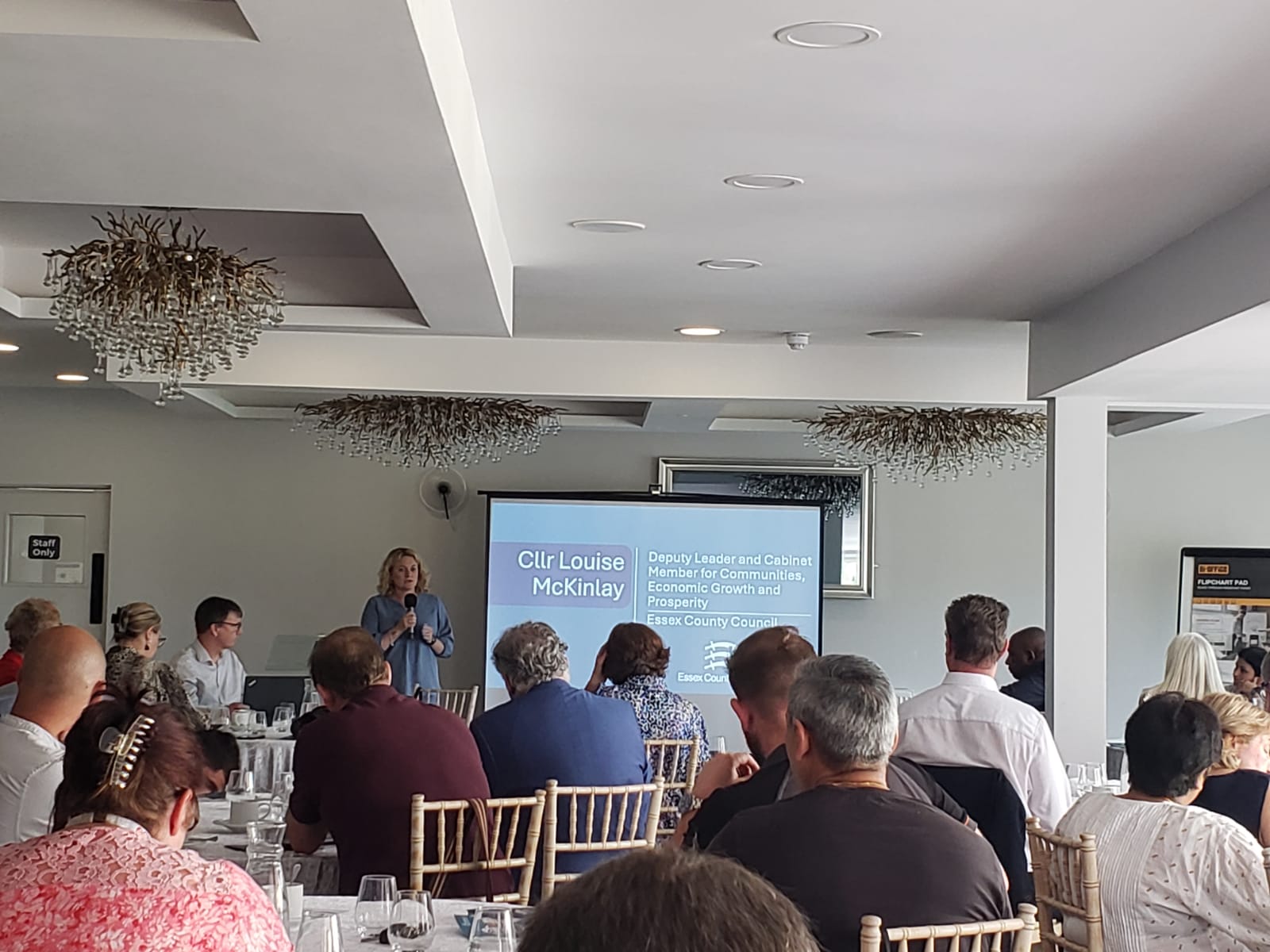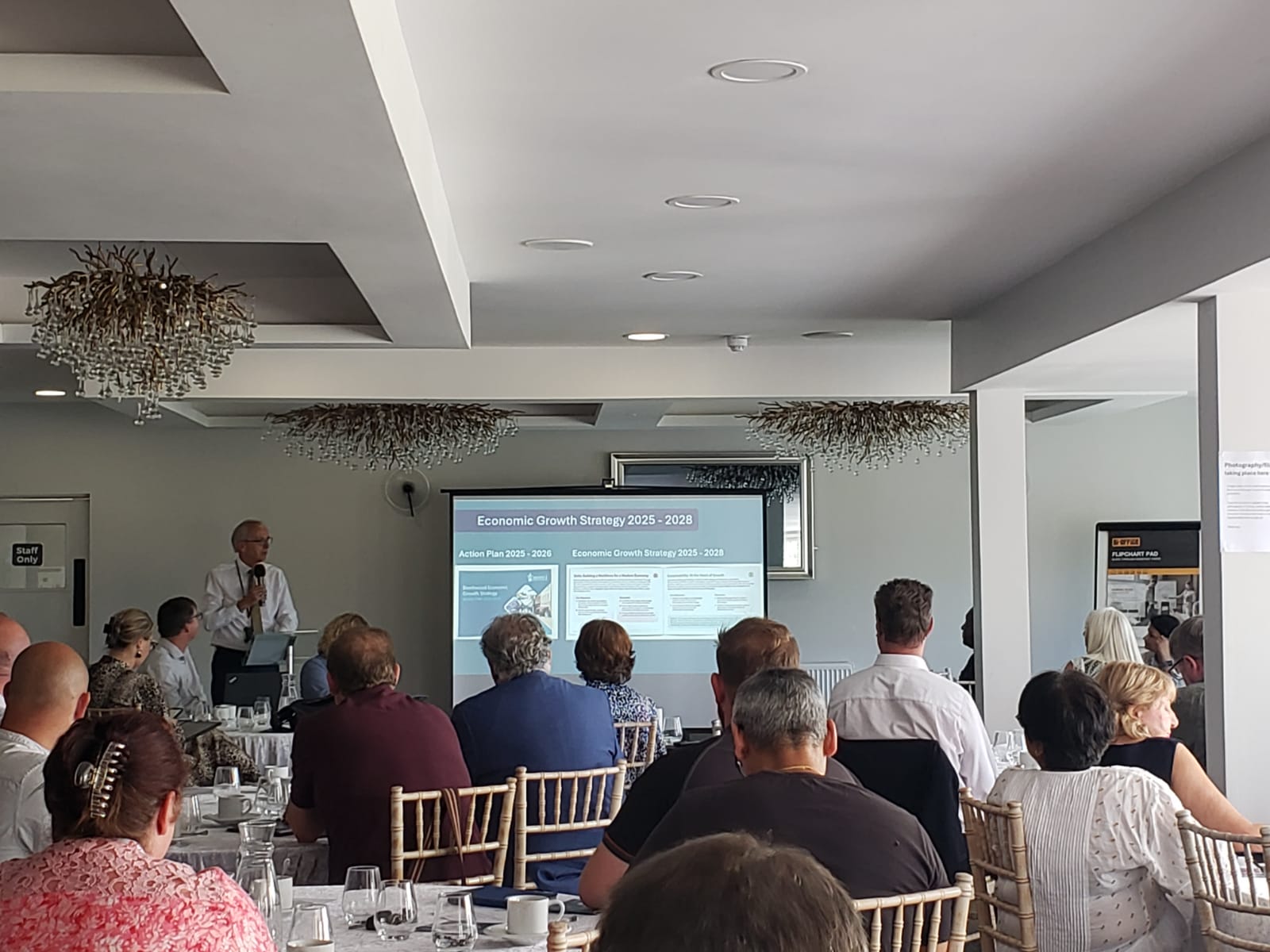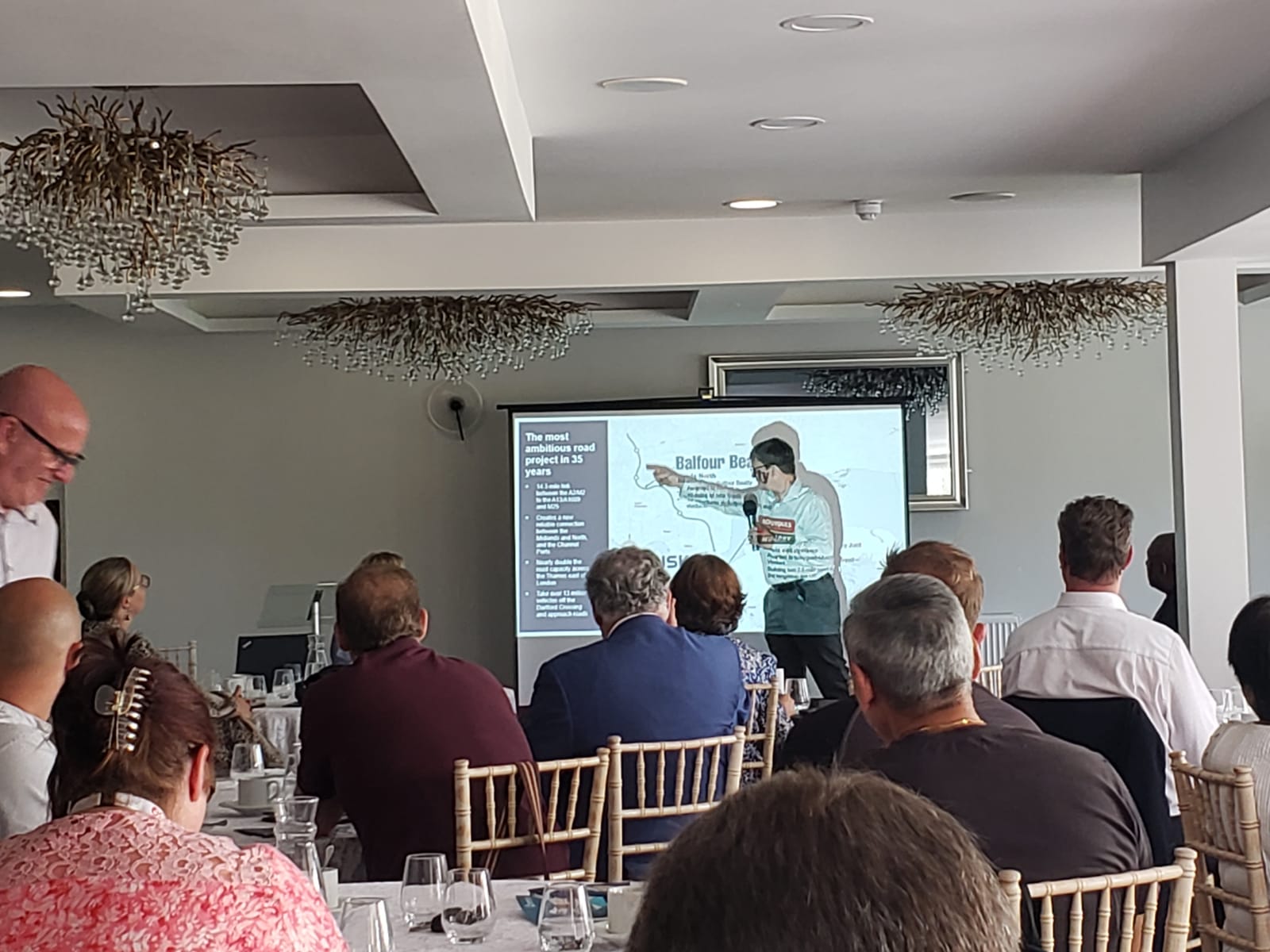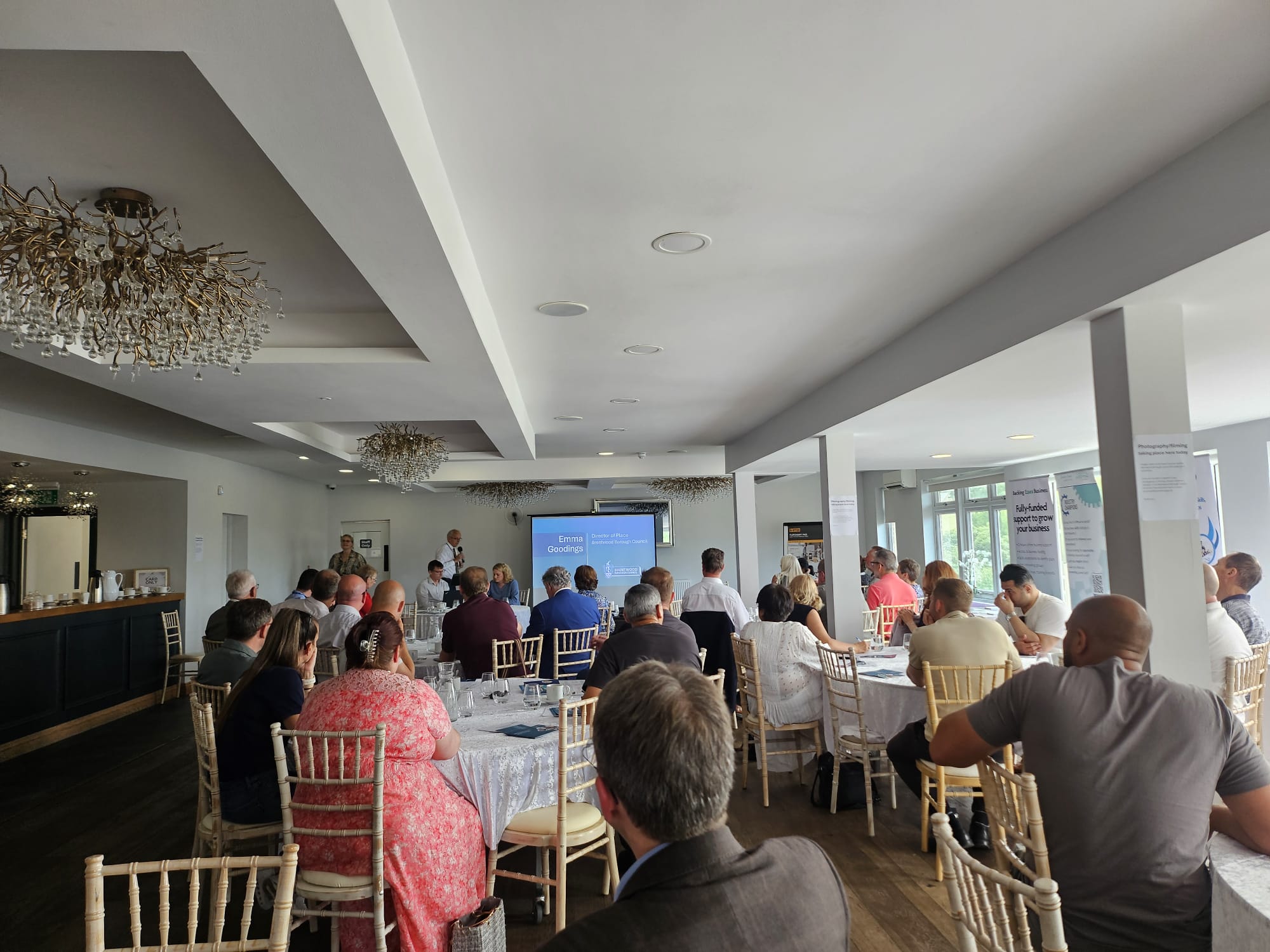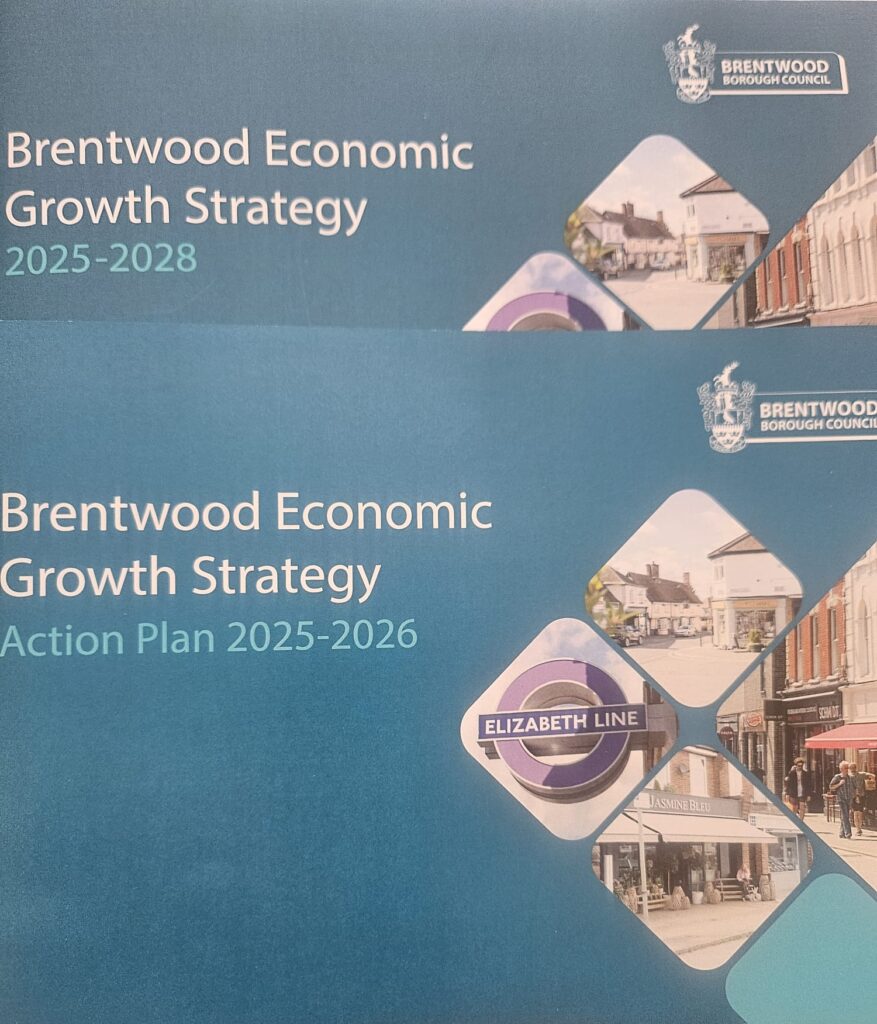The Chamber attended and had a stand at the Brentwood Borough Council Business Briefing, held this week at Warley Park Golf Club
This was a well attended and highly informative event and is a new initiative from Brentwood Council to support local businesses. It was free for all to attend with attendees having the chance to network before and after the event over a light buffet lunch,
Emma Goodings from BCC kicked off the proceedings welcoming speakers, Cllr Louise McKinley from Essex County Council, Peter Smith – Partnership Director at the Lower Thames Crossing and Cllr David Kendall-Chair of the Finance and Resources Committee and Brentwood Council.
Summaries from the speakers are below:
- Councillor Louise McKinley, Deputy Leader and Cabinet Member for Communities, Economic Growth, and Prosperity at Essex County Council.
◦ Emphasized the underestimated potential of Essex, highlighting its £51 billion economy, larger than Northern Ireland’s.
◦ Discussed the newly launched Essex Growth Hub, which offers free advice to businesses, and the importance of a targeted approach to support various business needs.
◦ Invites businesses to share their needs and work closely with the County Council to create conditions for growth and thriving businesses.
◦ Reiterates the importance of the Essex Growth Hub in providing tailored support to businesses, including small businesses and startups.
◦ Mentions the involvement of partners like the chamber in networking and support activities.
◦ Highlights the role of the County Council in creating conditions for business growth and the importance of direct support and skills development for businesses.
- Pete Smith from National Highways, Partnership Director for The Lower Thames Crossing
◦ The project is a £10 billion investment, the most ambitious road development in 35 years, connecting Essex and Kent through a tunnel beneath the River Thames.
◦ Outlines the route, the three main contractors involved, and the importance of these contractors for businesses looking to engage with the project.
◦ Emphasizes the scale of the project, including the tunnel’s diameter and the need for significant investment in local infrastructure.
◦ Explains the importance of the Lower Thames Crossing project for businesses, highlighting the guaranteed revenue stream and the potential for innovation and sustainability.
◦ He provides a timeline for the project, including the start of construction in spring 2028 and the importance of planning and engagement for businesses.
◦ Introduces the Lower Thames Crossing Supply Chain Directory, where businesses can register their interest and be part of the project.
◦ Emphasizes the commitment to significant spending and the importance of engaging with new businesses to support the project’s goals.
◦ Discusses the importance of skills development and community engagement, including the setup of permanent skills hubs and the focus on equitable opportunities for all.
◦ Highlights the need for businesses to invest in innovation, sustainability, and efficiency, and the Lower Thames Crossing project as an opportunity to achieve these goals.
◦ Mentions the negative impacts of the project and the measures in place to mitigate them, such as noise barriers and green space creation.
◦ Concludes by emphasizing the project’s commitment to reducing carbon emissions and supporting innovation and sustainability in the UK.
- Councillor David Kendall, Chair of the Finance and Resources Committee at Brentwood Borough Council
◦ Mentions his responsibilities for council finances, economic development, and parking.
◦ He shares his professional background, including his experience at Levi Strauss and Lee Cooper, and his decision to start his own business in carpet and upholstery cleaning.
◦ Emphasizes his pride in launching Brentwood Borough Council’s economic growth strategy, aiming to grow the local economy from 25 to 28.
◦ Explains the importance of the action plan, which outlines specific actions to support the strategy.
◦ He highlights the need for constant updates to the action plan to keep it relevant.
◦ The strategy is based on fact and evidence, with 88% of businesses in the borough being micro businesses.
◦ Construction is the top business sector, followed by professional and admin sectors.
◦ Discusses the importance of the local development plan and the impact of new housing on local businesses.
◦ He mentions a visit to the Treehouse Nursery and the need for businesses to be aware of new housing developments.
◦ The council consulted with the business community, including the Brentwood Chamber of Commerce and Brentwood BID, to gather feedback for the strategy.
◦ Feedback from local businesses was incorporated into the action plan, emphasizing the council’s commitment to practical support.
◦ The first priority is supporting startups, aiming to make Brentwood a hub for entrepreneurs in Essex.
◦ The second priority is building a workforce with the skills needed for the modern economy, despite the lack of a university.
◦ The third priority is sustainability, helping businesses reduce their carbon footprints.
◦ Other areas of focus include transport and connectivity, addressing the challenges of public transport in Brentwood.
◦ The council runs regular network events to provide updates and bring the business community together.
◦ A speed business networking event was successful, allowing businesses to connect quickly and efficiently.
◦ The get set grow business support program helps new businesses with expert advice and a Dragon’s Den-style pitch event.
◦ A careers options schools program introduces secondary school students to skills needed for future jobs in South Essex.
◦ Shop front improvement grants provide financial support for High Street businesses to improve their appearance.
◦ Councillor Kendall praises a local business, Whitaker’s restaurant, for their efforts in improving their shop front.
◦ He encourages businesses to approach the economic development team with ideas and to seek support for growing their business.

